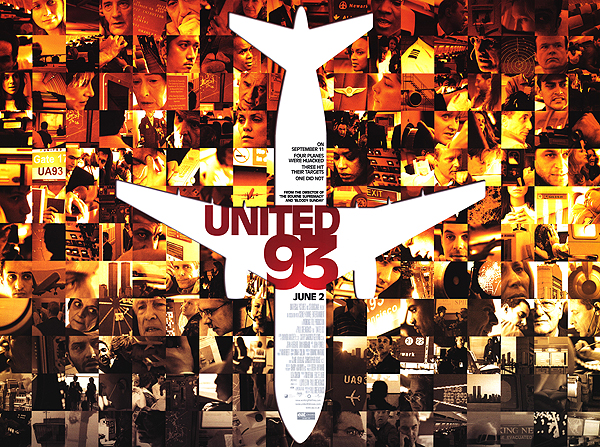
Sometime in 2006, United 93, a taut, almost unemotional account of the fourth hijacked plane that did not reach its destination on the morning of September 11 , 2001 hit the theatres. What moved me about the film was its intention to not manipulate the emotions of viewers who had on one terrible morning learnt that when terror strikes with a cold heart and a plan beyond human imagination, the impossible becomes possible and people die in thousands, helplessly, terribly in country that is supposedly the most powerful in the world.
***
The unique thing about 9/11 was its universality. Not just because, we felt for the passengers in the planes that cruelly rammed into three landmarks and the many who died of the impact but because it was televised. All of it. each moment of horror when a normal, sunny day became a day of mass mourning and a collective loss of something that can only be described as innocence. Who would have thought of a passenger plane before this day as a weapon of mass destruction? Who would have thought of racial profiling at airports and elsewhere? Or the chronic hatred Asians, Muslims and Sikhs would have to live through and occasionally die of post 9/11?
***
It is not that crimes against humanity had not been committed before. America is not averse to twisting the very ideas of freedom and sovereignty it swears by when it foot-stomps the map, crushing little countries for what it wants from them on a given day. It could be oil. Or imaginary weapons of mass destruction. Or some threat to the world that valiant American soldiers must avenge because no other life is as valuable as an American life but on 9/11, the global bully lost a little bit of its unpopularity. For a while atleast because we saw in the place of a supercilious superpower, a country in pain and shock and we felt it too like fellow humans across borders and political differences. We cried and gasped and mourned as the American media brought home the disbelief, the raw human tragedy, the immediacy of grief.
***
That is why it was a bit of a relief when director Paul Greengrass kept the extreme emotions evoked by that morning out of his film. There was also a subtext. That religion is not important. What you do with it is. And that we must not indict religion for the way people interpret it. In the opening scenes of United 93 however, we see four prospective hijackers on their knees, praying and committing themselves to a God only they can conjure up in the middle of the evil they are going to unleash. They do not yet know how much intolerance they are going to trigger against their own people. And how intolerance at American airports against anyone who even remotely evokes the memories of 9/11 will be contextualised because really how much is political correctness worth if the lives of hundreds, or thousands are at stake? Is the self-respect of a bunch of passengers, no matter how innocent they may be, worth more than the security of an entire aircraft?
***
Greengrass keeps his narrative integrated towards telling the story of a plane that crashed with its passengers and hijackers and remains remarkably composed as he traces the sequence of events that led to the passengers of United 93 bursting into the cockpit and preventing the plane from reaching Washington. The film’s biggest strength was its sense of immediacy. It placed you in the middle of passengers who had lives to lead, loved ones to meet but found themselves heading towards certain death but chose not to give in without a fight. The film almost made one forget one’s dislike for America’s ham-handed peacekeeping skills and compellingly made you care for people who just wanted to get home. The only thing the film intended to say is this. It could have been you. Or me.
***
From the time, the hijackers take over the aircraft with small knives and a fake body bomb, we are in the heart of a nightmare that we know we will not wake up from because we know this happened to real people who never imagined they were on the last flight of their life. What would they have felt when they came to know that the pilots had been killed and stowed away to make way for a hijacker on a suicidal mission? When they made those last furtive calls to their loved ones to say good bye? We cry for them and with them in those last, horrific gasps of life before the plane spirals to a crash in a field near Shanksville, Pennsylvania . It is true that no one will ever have the money and the skill to make a film about the countless civilians that died in Iraq because of American air raids. It is also true that all lives and not just the lives of American citizens deserve to be honoured and valued but United 93 shows us with painful clarity how no one in today’s world, can take living for granted. How humanity everywhere is an endangered thing. On the anniversary of September 11, we know that atleast if nothing else and can only pray that not one single innocent life will be sacrificed ever again for politics or misguided fanaticism.






